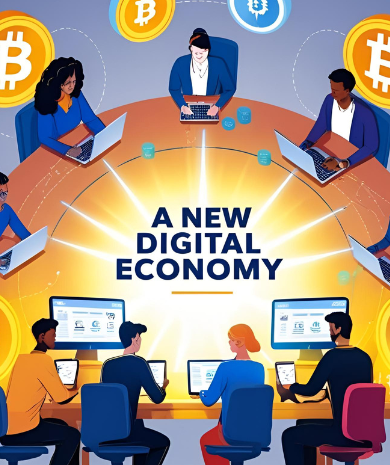Future Tech Developments
Technology is evolving at an unprecedented pace, revolutionizing industries and transforming the way businesses operate. Companies that fail to anticipate and adapt to future technological advancements risk losing their competitive edge. At Cyber Alchemist, we are committed to investing in research and development to explore emerging technologies that will redefine the digital landscape.
From AI-driven automation to quantum computing and enhanced cybersecurity solutions, the next wave of innovation promises greater efficiency, security, and intelligence. This article explores the key future technology developments that businesses must embrace to stay ahead in the digital era.
AI-Driven Automation: The Next Level of Smart Operations
The Evolution of AI in Automation
Artificial Intelligence (AI) has already transformed industries by automating repetitive tasks, analyzing vast datasets, and making real-time decisions. The next wave of AI development will expand automation into creative, strategic, and decision-making processes.
AI-driven automation will move beyond simple rule-based workflows and evolve into self-learning systems that optimize business operations, customer interactions, and supply chains.
🔹 Future Trends in AI Automation
✔ Hyper-Automation: AI, machine learning (ML), and robotic process automation (RPA) will work together to automate end-to-end workflows.
✔ AI-Powered Decision-Making: AI will predict market trends, optimize strategies, and guide businesses in real-time.
✔ AI-Driven Creativity: Generative AI will assist in content creation, product design, and personalized customer experiences.
📌 Example: AI in Manufacturing
Smart factories will integrate AI-powered predictive maintenance, ensuring machines self-diagnose issues before failures occur, reducing downtime and increasing efficiency.




Quantum Computing: A Game-Changer for Data Processing
Understanding Quantum Computing
Quantum computing harnesses the principles of quantum mechanics to perform computations at speeds impossible for classical computers.
Unlike traditional computers that use binary bits (0s and 1s), quantum computers use qubits, which can exist in multiple states simultaneously (superposition), leading to exponential computational power.
🔹 Potential Applications of Quantum Computing
✔ Cryptography & Cybersecurity: Quantum encryption will create unbreakable security for sensitive data.
✔ Financial Modeling: Banks will use quantum computing for faster risk analysis and fraud detection.
✔ Drug Discovery & Healthcare: Quantum simulations will accelerate new drug discoveries and medical research.
✔ AI & Machine Learning: Quantum computing will enhance AI algorithms, making them faster and more efficient.
📌 Example: Quantum Computing in Logistics
Companies like DHL and FedEx are exploring quantum-powered optimization for route planning and supply chain logistics, reducing fuel costs and delivery times.

Enhanced Cybersecurity: Defending Against Evolving Threats
The Growing Cyber Threat Landscape
As businesses become more digital, cyber threats are growing in sophistication. Future cybersecurity solutions will rely on AI, blockchain, and quantum encryption to combat emerging risks.
🔹 Future Cybersecurity Trends
✔ AI-Powered Threat Detection: AI will analyze network activity in real-time to identify and mitigate threats before they occur.
✔ Zero Trust Architecture (ZTA): Businesses will adopt ZTA, ensuring continuous verification of users and devices.
✔ Quantum-Safe Cryptography: Protecting sensitive data against quantum cyberattacks with advanced encryption.
✔ Decentralized Security Models: Blockchain will secure financial transactions, digital identities, and smart contracts.
📌 Example: AI Cybersecurity in Finance
Banks and financial institutions are deploying AI-driven fraud detection to monitor real-time transactions and flag suspicious activities before they lead to financial losses.
The Rise of the Metaverse & Web3: A New Digital Economy
The Shift from Web2 to Web3
The evolution of the internet is moving towards Web3, a decentralized ecosystem powered by blockchain, AI, and digital assets.
In parallel, the Metaverse—a virtual 3D world—will become a hub for businesses, entertainment, and collaboration.
🔹 Key Web3 & Metaverse Trends
✔ Decentralized Finance (DeFi): Eliminating intermediaries in financial transactions.
✔ Virtual Workspaces & Digital Twins: Businesses will use virtual environments for meetings, training, and simulations.
✔ NFTs & Digital Ownership: Tokenized assets will enable secure and verifiable digital ownership.
📌 Example: The Metaverse in Events & Exhibitions
Virtual event platforms will allow businesses to host exhibitions, trade shows, and conferences in the Metaverse, enabling global participation without physical limitations.


Next-Generation Connectivity: 5G & Beyond
How 5G Will Transform Industries
The rollout of 5G networks will deliver ultra-fast speeds, low latency, and massive device connectivity, enabling real-time data transfer across industries.
🔹 Future Connectivity Innovations
✔ Edge Computing: Moving data processing closer to the user, reducing latency.
✔ 6G Development: By 2030, 6G networks will bring even higher speeds and AI-driven connectivity.
✔ Smart Cities: IoT-powered infrastructure will optimize traffic management, energy consumption, and public safety.
📌 Example: 5G in Healthcare
5G will enable real-time remote surgeries, where doctors can perform robotic-assisted operations from different locations with zero latency.
